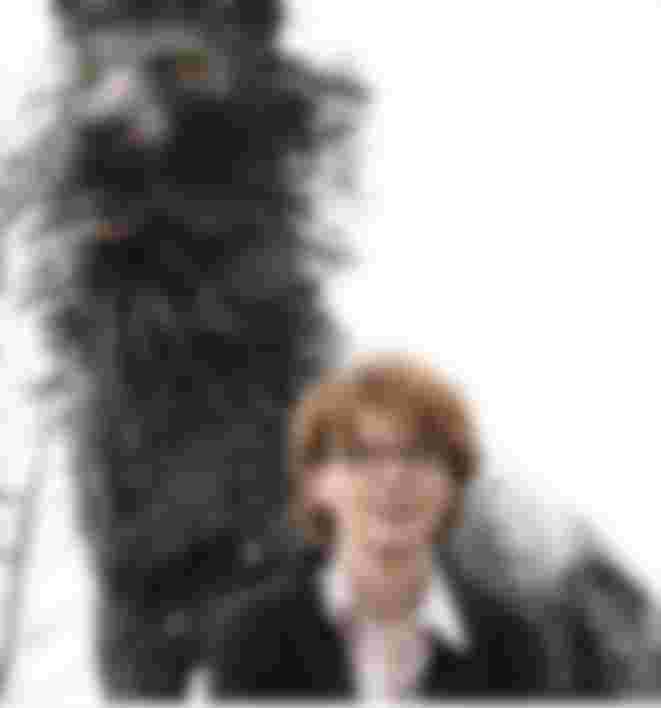

‘Writing a story is like having sex with a stranger in the dark’
Rosemary Jenkinson on the making of Marching Season, her new story collection
Fri, Oct 29, 2021, 06:11
Rosemary Jenkinson
2
Rosemary Jenkinson: “it’s possible I can be tempted at times to out-Protestant other writers, but I’ve never considered myself a mouthpiece for one particular side.”
The title is key to any short story collection as it unlocks the writer’s preoccupations. For this collection, the titular story Marching Season felt strong, but I primarily chose it because it refers to the Orange flute-band parades from April to August and is therefore contentious. Evocative and provocative. Marching Season is synonymous in many people’s minds with potential trouble, but is a joyous musical road trip for others. I love that one phrase can be so divisive and it sums up Northern Ireland perfectly in a year of Brexit and riots.
Marching Season is my fifth collection and that might sound prolific to some, but in comparison to the greats it’s paltry. The short story writers I admire were mentally fecund and make contemporary specialists such as Claire Keegan look like dabblers. One of the most exceptionally prolific was Guy de Maupassant who wrote a whopping two to four volumes annually of short stories, not to mention his novels. F Scott Fitzgerald died at 44 and still managed to have more than 160 short stories published. Among the Irish writers, William Trevor wrote 13 short story collections while the genius Mary Lavin superseded him with 19.
Kevin Barry considers very few of his short stories worthy of publication: “I would say out of every 10 I try, one or two will ever get outside the door”, but even bearing in mind that he may have said this in order to seem a perfectionist (and all of us writers are prone to self-mythology), it surprised me as I’ve found the more you write, the more confident you become. Let’s be honest – if you were only 10 to 20 per cent successful in most jobs, you’d be sacked! And why wouldn’t you want to emulate the former masters of the form? To be prolific, you mustn’t be too precious about your work
‘Writing a story is like having sex with a stranger in the dark’
Rosemary Jenkinson on the making of Marching Season, her new story collection
Fri, Oct 29, 2021, 06:11
Rosemary Jenkinson
2
Rosemary Jenkinson: “it’s possible I can be tempted at times to out-Protestant other writers, but I’ve never considered myself a mouthpiece for one particular side.”
The title is key to any short story collection as it unlocks the writer’s preoccupations. For this collection, the titular story Marching Season felt strong, but I primarily chose it because it refers to the Orange flute-band parades from April to August and is therefore contentious. Evocative and provocative. Marching Season is synonymous in many people’s minds with potential trouble, but is a joyous musical road trip for others. I love that one phrase can be so divisive and it sums up Northern Ireland perfectly in a year of Brexit and riots.
Marching Season is my fifth collection and that might sound prolific to some, but in comparison to the greats it’s paltry. The short story writers I admire were mentally fecund and make contemporary specialists such as Claire Keegan look like dabblers. One of the most exceptionally prolific was Guy de Maupassant who wrote a whopping two to four volumes annually of short stories, not to mention his novels. F Scott Fitzgerald died at 44 and still managed to have more than 160 short stories published. Among the Irish writers, William Trevor wrote 13 short story collections while the genius Mary Lavin superseded him with 19.
Kevin Barry considers very few of his short stories worthy of publication: “I would say out of every 10 I try, one or two will ever get outside the door”, but even bearing in mind that he may have said this in order to seem a perfectionist (and all of us writers are prone to self-mythology), it surprised me as I’ve found the more you write, the more confident you become. Let’s be honest – if you were only 10 to 20 per cent successful in most jobs, you’d be sacked! And why wouldn’t you want to emulate the former masters of the form? To be prolific, you mustn’t be too precious about your work.
The biggest question aside from choosing the title is how many stories a collection should include. Trevor favoured 12 and Lucy Caldwell favours 11, but I’m not at all prescriptive. The mainstream school of thought is that collections should be slimline like poetry, as if to imply a rarified art-form, but I’m all for a bulkier approach. Marching Season has 13 short stories, 13 being my lucky number as my brother was born on the 13th, as was my niece.
This connection is especially fitting as Marching Season is a family collaboration. When I was talking to Alan Hayes of Arlen House last year, I told him that my mum had been an artist. Alan loved the idea of an art/short story fusion, so this collection carries 16 of her paintings and memorialises her talent. The front cover is also personal as it was painted by a delightfully mad Russian artist I went out with in Prague.
As for the stories, most were written before Covid, but a few, such as Irish-Australian and What Happened to You, were written during lockdown when I kept dreaming of foreign travel. Lockdown made me talk to myself more but I often think the true recompense for a writer’s loneliness comes from the priceless observations that can only be made during solitude.
Sexual desire is a big theme in Marching Season in differing forms and permutations. I’m fascinated by hedonism as a form of self-escape and my characters are often aesthetes and epiphanists. Dr Caroline Magennis recently made a tongue-in-cheek observation in Writing After the Troubles that I “might be dubbed Belfast’s pleasure laureate” and, funnily enough, I’ve often thought I should ask for sponsorship from Carlsberg and Durex! The opening story, The a, b and c’s of Modern Living, commemorates the days when we could commingle freely in pubs, but one of the darker narratives, Life is Short and Fun Should be Had, centres on our lockdown reality of cyber-dating and the paranoiac distrust it engenders. Other stories are about the jealousy arising from a threesome, a controlling relationship, sexual confusion, youthful longing and a fantasy that goes wrong.
So far, so universal, but I couldn’t call the collection Marching Season without dealing with the sceptred part of this isle. In the title story, a drag queen, Marcus, is alienated from those who march the Queen’s highway, prompting his last-ditch effort to belong. Portrait of a European City is based on a real incident where a Sinn Féin MLA attended an East Belfast art exhibition without local paramilitary clearance.
The story reflects the current culture wars wherein politicians use the arts for their own political gain and it also highlights the East as the current creative hotbed of Belfast. In the surge of new Protestant writing, it’s possible I can be tempted at times to out-Protestant other writers, but I’ve never considered myself a mouthpiece for one particular side. For instance, The Night they Shot the Journalist is about republicans in Derry and is inspired by the murder of Lyra McKee. I don’t need to be something to write about it; I just need to know and feel something.
Autobiography doesn’t so much play a part in Marching Season as a leading role. It’s the “petits faits vrais” that enable writing to soar. In Future-Proof Your Life (Step 7 of 10), I recalled my excruciating lapses of memory during a Tedx talk at Stormont. The best thing about being a writer is that you can write about your disasters until they become paradoxically more valuable than your achievements. Failure in life should always be mined for literary success.
I try to write every story like it’s my first and every line like it’s my last. Lasting work is what counts and real writers don’t want 15 minutes of fame; we want 15 millennia of fame. Reaching my fifties hasn’t made me a better writer, but it’s made me a more focused writer and there’s nothing that concentrates the mind more than the sense of contracting time.
Zero width embedWilliam Trevor called the short story “an impressionist painting” and “an explosion of truth”. To me, writing a story is like having sex with a stranger in the dark; you have a vision of what could happen, but you have to feel your way through it. Trevor also said that stories are “concerned with the total exclusion of meaninglessness”, and after I’ve finished a story, I’ll begin the delicate process of scoring out words, sentences or whole paragraphs. To return to Trevor’s analogy of the painting, editing is like rubbing out the pencil marks of the initial rough sketch. The final story should be an image, a little nebulous around the edges, but utterly transparent and transfixing at its core.
Ultimately, I see a short story writer as a prose writer with a poet’s soul, a metaphorist, a symbolist. John Banville made me laugh when he recently admitted that ‘writing a novel is like wading through wet sand, at night, in a storm.’ I’m glad to say writing Marching Season was no long sapping march through the sand. Because of the brevity of form, short stories are freeing to write and I stepped lightly all the way.
Marching Season is published by Arlen HouseREAD MORE
Jimmy Carr: Stephen Hawking and me would do shots together. He’d be on the Cointreau
Trump’s ‘terrifying’ temper, taste for show tunes, and call to ‘defend the size of his penis’
A Furious Devotion: The Life of Shane MacGowan is no fairytale
Chronicles from the Land of the Happiest People on Earth: A satire of corruption
Emer McLysaght and Sarah Breen: Our friendship and the personal crisis that deepened it
The Making of Incarnation by Tom McCarthy: A quest for perfection
Subscribe.
Click here to sign up to the Irish Times Book ClubMORE FROM THE IRISH TIMES
Imram: from John Prine as Gaeilge to Gabriel Rosenstock on Georg Trakl’s trail
Novelist Sarah Moss: ‘The injustice of the lockdown made my blood boil’
Harsh Times: Nobel laureate Mario Vargas Llosa brings Guatemala to life
Don’t numb yourself to the callousness at Tuam mother and baby home. Stay angry
SPONSORED
Home energy upgrades are now more important than ever
Ireland’s young adults discuss how science can provide a better future
The Dublin start-up making the future better with an appreciation for innovation
It’s a dog’s life with food fit for a king
YOUR COMMENTS
Sign In
We reserve the right to remove any content at any time from this Community, including without limitation if it violates the Community Standards. We ask that you report content that you in good faith believe violates the above rules by clicking the Flag link next to the offending comment or by filling out this form. New comments are only accepted for 3 days from the date of publication.
Subscriber Only
Harsh Times: Nobel laureate Mario Vargas Llosa brings Guatemala to life
Crime fiction: Joanne Harris’s A Narrow Door, plus this month’s other top titles
Derek Mahon, The Poems, 1961-2020; and Autumn Skies: Writers on Poems by Derek Mahon
Short stories
Lucy Caldwell introduces her award-winning story, All the People Were Mean and Bad
Funeral, a new short story by Robert Sheehan
Poetic justice, a new short story by Moya Roddy
The Books Podcast
The Irish Times Books Podcast - Darran Anderson, author of Inventory33:48
The Irish Times Books Podcast The best crime fiction of 201940:49
The Irish Times Books Podcast Remembering Maeve Binchy35:01
The Irish Times Books Podcast Danielle McLaughlin33:47
The Book Club
WEEKLY
Sign up to the Irish Times books newsletter for features, podcasts and more
Fighting Words 2020Roddy Doyle introduces head-turning young Irish writing
Most Read in Culture
1What being Irish means to me. By Leo Varadkar, Ola Majekodunmi, Mary Lou McDonald and more
2Monica Lewinsky: ‘I wanted a job, a husband, kids. I wanted to be treated normally’
3Rebel Wilson’s ‘unrecognisable’ weight-loss photos are toxic and depressing
4Novelist Sarah Moss: ‘The injustice of the lockdown made my blood boil’
5The Music Quiz: Who in The Who had a bath in a tub of Heinz Baked Beans?
Book reviews
Harsh Times: Nobel laureate Mario Vargas Llosa brings Guatemala to life
Innocence and experience: RTÉ journalist publishes a diary from the first lockdown
Autobibliography by Rob Doyle: A funny trawl though the 52 books that made him
The Lyrics: Great Beatles songs have, somehow, become even greater
The Young HG Wells: a very readable and fascinating account of the author’s life
New poetry
Poem of the week: At the Gotham Book Mart
Poem of the week: Twenty-One Questions
Women writersPutting Irish women writers back in the picture
Roddy Doyle’s Fighting WordsCelebrating 10 years of young Irish writing
Brought to Book
‘Writing is a good way to process what’s going on in your own life’
Kate Hamer Q&A: ‘Write the story that is burning inside you’
SUBSCRIBE
SUPPORT
IRISH TIMES PRODUCTS & SERVICES
ABOUT US
OUR PARTNERS
Follow us
Download the app
Cookie Settings
© 2021 THE IRISH TIMES
SUGGESTED FOR YOU The Presidents’ Letter

